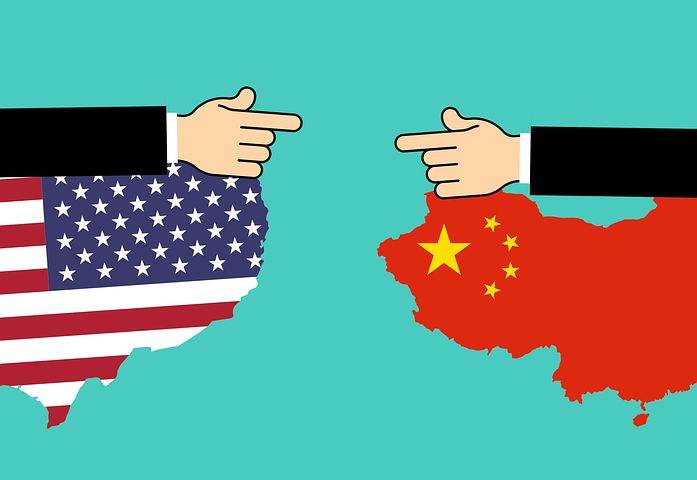 Over 390 days into the trade war between the United States and China, the tension shows no sign of easing, and traders have continue to take notice. Asian shares fell swiftly and steeply on Monday morning, with Japan’s Nikkei 225 down 1.97 percent as of 10:04 a.m. HK/SIN, and South Korea’s Kospi down just over 2 percent. Hong Kong’s Hang Seng Index saw the biggest declines, down as much as 2.16 percent in early trade.
Over 390 days into the trade war between the United States and China, the tension shows no sign of easing, and traders have continue to take notice. Asian shares fell swiftly and steeply on Monday morning, with Japan’s Nikkei 225 down 1.97 percent as of 10:04 a.m. HK/SIN, and South Korea’s Kospi down just over 2 percent. Hong Kong’s Hang Seng Index saw the biggest declines, down as much as 2.16 percent in early trade.
Currency markets also reacted to the trade tensions, with the yen serving as a safe-haven asset. The dollar eased 0.50 percent against the yen to 106.05 on Monday morning, down significantly after breaking the 109-mark just last week.
On Thursday, President Donald Trump announced the possibility of implementing another round of 10 percent tariffs on as much as $325 billion of Chinese imports to the U.S., and his inflammatory words immediately rippled through the markets. The U.S. has already imposed tariffs on $250 billion worth of Chinese goods. China, for its part, has placed tariffs on $110 billion of U.S. goods and has threatened retaliatory steps if additional tariffs are implemented by the U.S.
According to reports by the Wall Street Journal that were republished by CNBC, all of Trump’s top advisors objected to his calls for fresh tariffs on Chinese goods, but Trump insisted on pushing them forward despite the objections of his team. Among those who objected to new tariffs were economic advisor Larry Kudlow, national security advisor John Bolton and acting chief of staff Mick Mulvaney. Trump announced his decision via Twitter in what he intimated is a direct response for China’s failure to purchase large quantities of American agricultural goods as it had promised.
Over the weekend, Peter Navarro, the Director of Trade and Manufacturing Policy, publicly claimed that the current tariffs were not raising costs for Americans. He posited that China was assuming the costs of the tariffs and that there have been no negative impacts on U.S. businesses, a claim long-asserted by Trump himself. In an interview with Fox news, when faced directly with statistics showing that prices for U.S. consumers have been climbing, Navarro claimed that Chinese manufacturers were lowering prices to compensate for the tariffs. Despite this claim, there is no doubt that importers are footing the bill, as they are the ones who must pay import fees which they then pass along to their customers.
Yet despite the conflict and confusion regarding the current tariffs and future intentions, one thing remains clear; the markets will continue to react strongly to trade-related news for the foreseeable future.
